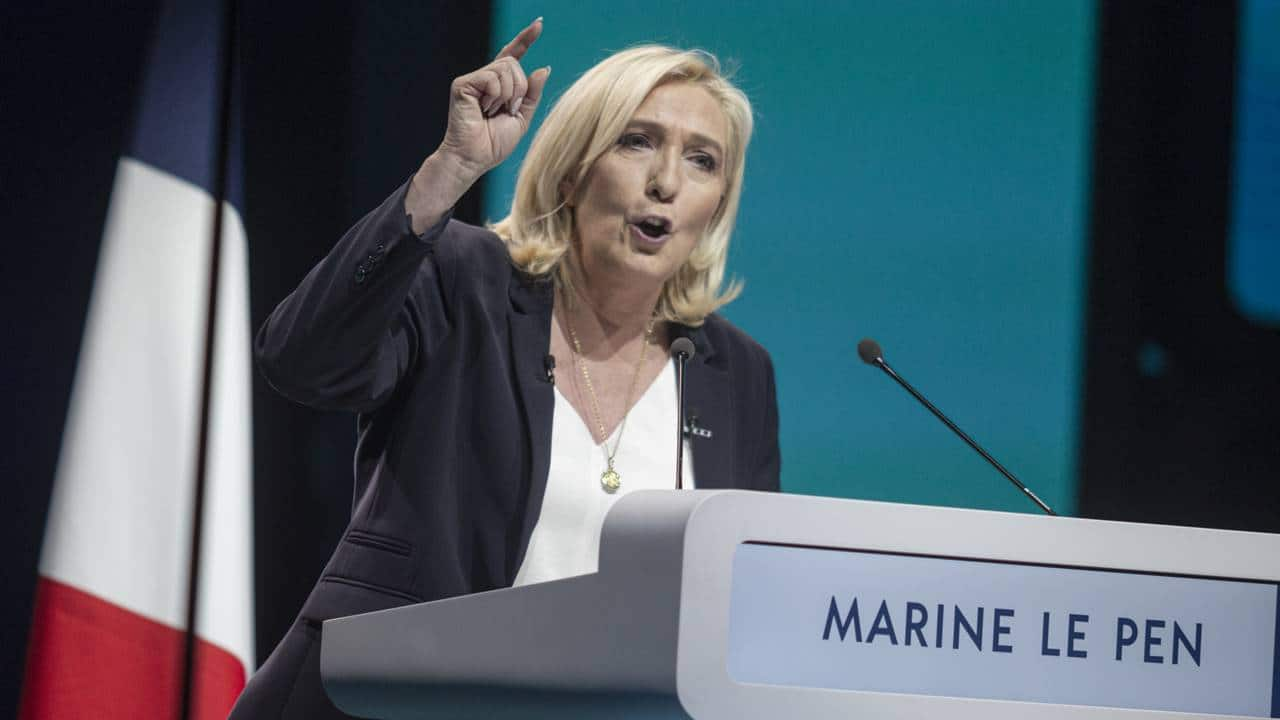UN-Russia grain and fertilizer export talks fail

The UN chief held talks with Russian officials on Friday about the Black Sea pact on grain and fertilizer exports, eight days before one of the deals expired.
Discussions took place behind closed doors at the UN Palais des Nations headquarters in Geneva and concluded mid-afternoon.
“Discussions have been renewed on progress to facilitate the unhindered export of food and fertilizers, including ammonia, from the Russian Federation to world markets,” said a United Nations statement.
At a meeting with the Russian delegation, led by the United Nations Executive Director for Humanitarian Affairs Martin Griffiths, United Nations Trade and Development Organization Executive Director Rebecca Grinspan and Deputy Minister of Foreign Affairs Sergey Vershinin, the “for payment, transport insurance, grain and fertilizer” The focus was also on measures taken to facilitate access to EU ports in the United States.
“The world cannot allow the global fertilizer access problem to become a global food shortage,” the statement said.
The United Nations also successfully unblocked a shipment of 20,000 tonnes of Dutch fertilizer that was stuck in the Dutch port of Rotterdam due to sanctions imposed by the EU on certain individuals and goods.
According to the Dutch Ministry of Foreign Affairs, the cargo will be heading to Malawi in the coming days under the auspices of the United Nations World Food Programme.
“The fertilizer in question was frozen because the sanctioned individual is involved with a Russian company that owns it,” it said, without naming the individuals or companies involved.
“The decision to release the fertilizer was made on the understanding that the United Nations would ensure that it would be delivered to the agreed location (Malawi) and that the Russian company and the sanctioned individuals would gain nothing from the transaction. I did,” said Hague.
– 10.2 million tons of exports –
Two agreements brokered by the United Nations and Turkey were signed on 22 July.
The first was to allow Ukrainian grain exports blocked by Russia’s war in Ukraine, but the second was despite the Western sanctions imposed on Moscow following the Russian aggression. Instead, it was about Russia’s food and fertilizer exports.
The 120-day Black Sea Grains Initiative ended on November 19, with the United Nations aiming for a one-year renewal.
However, the Russian government has yet to say whether it will agree to this.
The company complains that a second agreement exempting fertilizers from sanctions, which is due to run for three years, has not been honored.
“The United Nations calls on all parties to expedite the removal of remaining obstacles to the export and transportation of fertilizers to countries most in need,” a UN spokesperson added.
Ukraine is one of the world’s leading grain producers and the Russian invasion blocked 20 million tons of grain in its ports until a safe transit agreement was agreed.
As of Thursday, 10.2 million tonnes of grain and other foodstuffs had been exported from Ukraine under the deal, alleviating some concerns over the deepening global food security crisis.
– “Very Severe” Impact –
The Food and Agriculture Organization (FAO) of the United Nations says that if the agreement is not renewed, it could have a major impact on global food security.
Boubaker Ben Belhassen, FAO’s Director of Markets and Trade, said:
“But I think if we were to get into a scenario that no one wants to see, which is the termination of the contract, the situation would be very difficult and the consequences could be very serious,” he said from Roma. home of the FAO, told reporters via a video link in
He specifically pointed to global food security, prices, availability and staples.
In the short term, prices for wheat, corn and sunflower seed oil in particular will rise, reducing the availability of grains on global markets, said Ben Verhassen.
Countries that depend on imports from the Black Sea, especially the Middle East and North Africa, could be greatly affected.
Ben Belhassen also warned of repercussions within Ukraine if the contract is not renewed.
The grain deal has so far allowed Ukraine to release stocks from last winter’s harvest, easing pressure on storage capacity, he said.
It also gives farmers in the war-torn country a source of income, allowing them to make decisions about future investments and planting the next crop, he added.
https://www.expatica.com/nl/general/un-russia-grain-fertiliser-exports-talks-end-without-breakthrough-398426/ UN-Russia grain and fertilizer export talks fail





